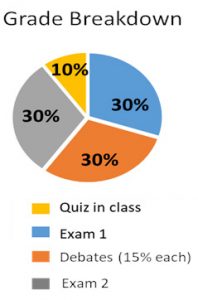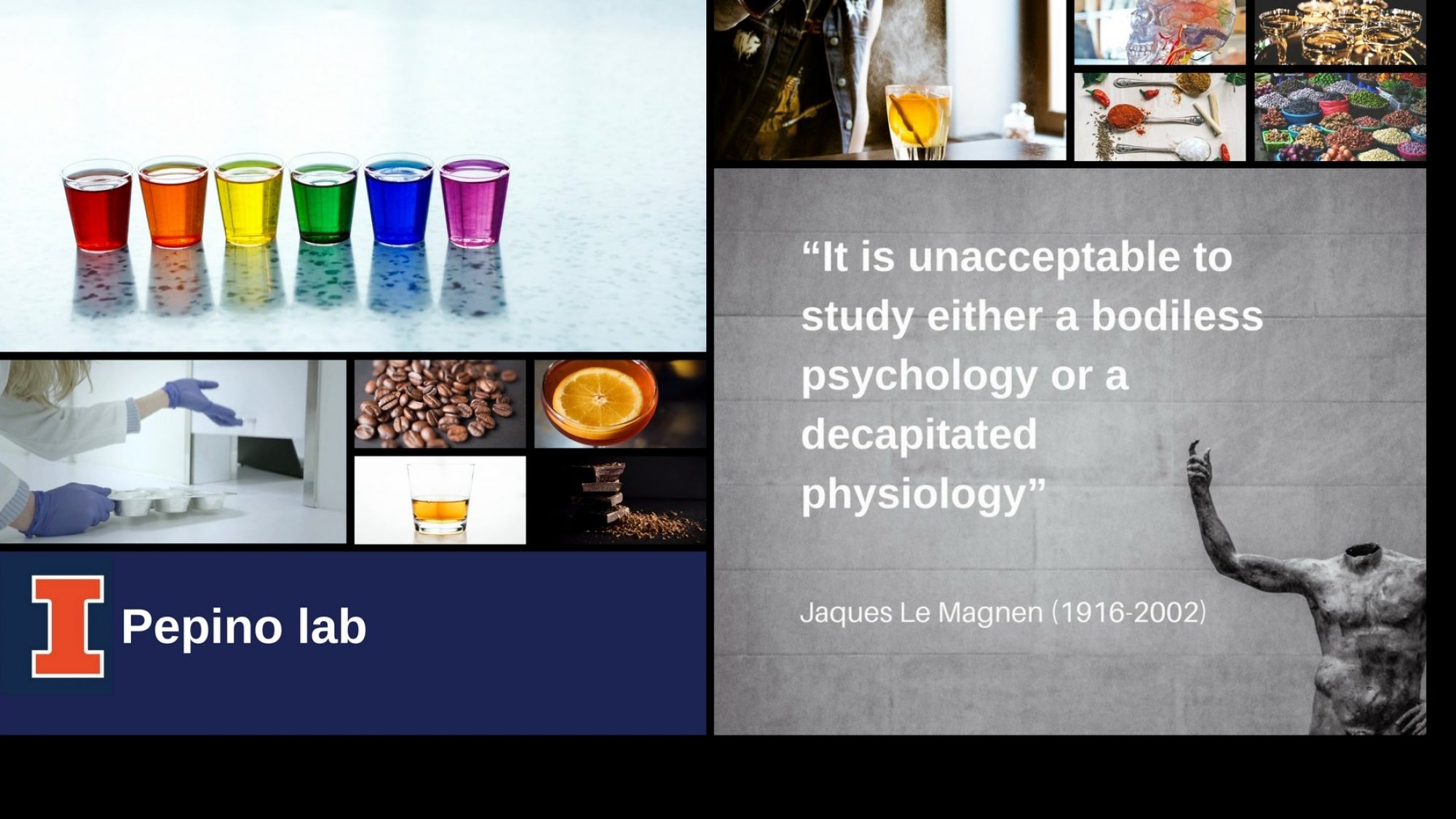Biopsychology of Ingestive Behavior (FSHN 424)
(3 credits) Spring 2021
Course Description and Objectives
Why do we eat what we eat? This course provides a taste of the science including both biological and psychological basis of ingestive behavior and the adoption of both healthy and maladaptive behaviors concerning eating and drinking. We will review and integrate historical theories with recent research on how we perceive flavor, the development of food preferences, and the biological basis of hunger, thirst, and satiety. Students will also have the opportunity to strengthen their critical thinking skills by participating on two debates in which equal number of arguments will be formulated to support or refute important issues in the field of food science and human nutrition. This is a graduate/advanced undergraduate course.
 By the end of this course, you should be able to:
By the end of this course, you should be able to:
- Identify key theories, concepts, and methods in the study of the biopsychology of eating and drinking.
- Increase awareness of individual differences in perception of flavors of food and beverages, as well as individual differences on their physiologic effects.
- Critically read the literature and discriminate between the science and the lore behind concepts related with ingestive behavior.
Class meets Tuesday & Thursday 9:30-10:50; Bevier Hall Room #328 (or via zoom)
Office hours by appointment
Course requirement:
- Net ID and AD password to access an Illinois Compass 2g website for the course: https://compass2g.illinois.edu
- I-clicker (You can buy one at the bookstore).
- Textbook : “The psychology of eating and drinking”, by Alexandra W. Logue, Fourth Edition, Routledge, New York and London.
- Additional reading material will be posted in the website for the course.
 Exams: You will be evaluated on your understanding of the material by taking two non-cumulative exams. No make-up exams will be given unless proof of necessary absenteeism (e.g., Doctor’s note) is provided.
Exams: You will be evaluated on your understanding of the material by taking two non-cumulative exams. No make-up exams will be given unless proof of necessary absenteeism (e.g., Doctor’s note) is provided.
Quiz: Please read all assigned readings before they are covered in class. You will participate of interactive quizzes during class.
Debates: Students will be divided in two groups. The task for one group will be to support, and for the other to refute scientific evidence in favor of 1) the use of non-nutritive sweeteners, and 2) including a diagnose of “Food Addiction” on the next manual of mental disorders. You will a) elaborate arguments for the debate with the group, b) practice critical writing by summarizing your point of argument and 3) give an oral presentation.
Grading: Your final course grade will be determined based on how many points you earned out of the total: A range=> 90%; B range= 80-89%; C range =70-79%; D range =60-69%; F =<59%.
NOTE: Students with special needs should notify the instructor during the first week of class, so adjustments can be made early in the semester. Disability Accommodations: Efforts will be made to accommodate students with disabilities. All requests for reasonable accommodations should be directed to the Disability Resources and Educational Services (DRES) Student Services Office (via phone: 217-333-1970; email: disability@illinois.edu; or website: www.disability.illinois.edu/).
University Policy on Academic Integrity: The University of Illinois at Urbana-Champaign Student Code should also be considered as a part of this syllabus. Students should pay particular attention to Article 1, Part 4: Academic Integrity. Read the Code at the following URL: http://studentcode.illinois.edu/ .
Academic dishonesty may result in a failing grade. Every student is expected to review and abide by the Academic Integrity Policy: http://studentcode.illinois.edu/. Ignorance is not an excuse for any academic dishonesty. It is your responsibility to read this policy to avoid any misunderstanding. Do not hesitate to ask the instructor(s) if you are ever in doubt about what constitutes plagiarism, cheating, or any other breach of academic integrity.
Students with Disabilities : To obtain disability-related academic adjustments and/or auxiliary aids, students with disabilities must contact the course instructor and the as soon as possible. To insure that disability-related concerns are properly addressed from the beginning, students with disabilities who require assistance to participate in this class should contact Disability Resources and Educational Services (DRES) and see the instructor as soon as possible. If you need accommodations for any sort of disability, please speak to me after class, or make an appointment to see me, or see me during my office hours. DRES provides students with academic accommodations, access, and support services. To contact DRES you may visit 1207 S. Oak St., Champaign, call 333-4603 (V/TDD), or e-mail a message to disability@uiuc.edu. http://www.disability.illinois.edu/.
Emergency Response Recommendations: Emergency response recommendations can be found at the following website: http://police.illinois.edu/emergency-preparedness/. I encourage you to review this website and the campus building floor plans website within the first 10 days of class. http://police.illinois.edu/emergency-preparedness/building-emergency-action-plans/.
Family Educational Rights and Privacy Act (FERPA): Any student who has suppressed their directory information pursuant to Family Educational Rights and Privacy Act (FERPA) should self-identify to the instructor to ensure protection of the privacy of their attendance in this course. See http://registrar.illinois.edu/ferpa for more information on FERPA.
